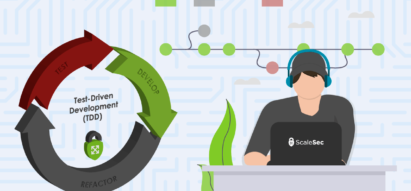Introduction
In an industry as dynamic and rapidly changing as technology, the ability to adapt and continually learn is not merely a nice-to-have, but an absolute necessity. This mantra of lifelong learning is echoed throughout tech circles worldwide, and for a good reason – it is the fuel that drives innovation and progress.
The Need for Continuous Learning
In the tech industry, the only constant is change. Programming languages evolve, frameworks come and go, and what was considered best practice yesterday may be obsolete tomorrow. This relentless pace of innovation makes it incredibly challenging to keep up. But as daunting as it may seem, it’s part of what makes a career in tech so exciting and fulfilling.
Lifelong Learning: An Essential Skill
As a seasoned Director of Software Engineering, I can’t stress enough the importance of adopting a learning mindset. The skillset you have today may get you to a certain point, but to propel your career forward and continue to deliver value, you need to perpetually add to your knowledge bank. It’s the difference between being reactive – constantly playing catch-up with the industry trends – and being proactive – staying ahead of the curve and often setting the trends yourself.
My Learning Strategy
Personally, I set aside a dedicated 1 to 2 hours each day for structured learning, informal learning, and hands-on learning. The structured learning might involve taking an online course or reading a book, while informal learning could be staying updated with the latest industry news through blogs, newsletters or podcasts. Hands-on learning is all about applying what I’ve learned in a practical project or work context.
Structured Learning: Building a Strong Foundation
Structured learning forms the foundation of your knowledge. This includes completing formal courses, certifications, or academic degrees in your field of interest. Websites like Coursera, Udacity, and edX offer a plethora of courses in various tech domains. The key is to choose the ones that align with your career goals and interests.
Informal Learning: Staying Updated
Informal learning helps you stay updated with the latest industry trends and insights. This could involve reading tech blogs, listening to podcasts, participating in webinars, or engaging in tech communities. Some of my go-to resources include the tech sections of Medium, TechCrunch, and Wired, along with podcasts like ‘Software Engineering Daily’ and ‘The InfoQ Podcast’.
Hands-on Learning: Learning by Doing
Finally, hands-on learning is where the rubber meets the road. It’s about applying the knowledge you’ve gained from structured and informal learning in a practical context. Whether it’s a side project, contributing to open source, or solving problems on platforms like LeetCode or HackerRank, hands-on experience solidifies your learning and gives you practical skills that you can immediately apply in your job.
Conclusion
In the ever-evolving tech landscape, the learning never stops. It’s a journey, not a destination. And while it might seem overwhelming at times, remember that every expert was once a beginner. So, start where you are, use what you have, and learn what you can. The tech world is your oyster, ready to be explored and conquered.
Are you ready to embark on your lifelong learning journey? Share your experiences, strategies, and favorite learning resources in the comments below.
Remember, in the tech industry, learning doesn’t stop when the course ends or the workday is over. It’s a lifelong pursuit. Embrace it, and you’ll open the doors to endless possibilities.


Leave your comment